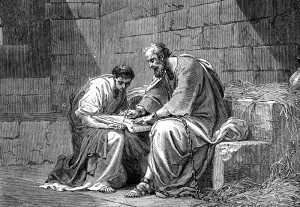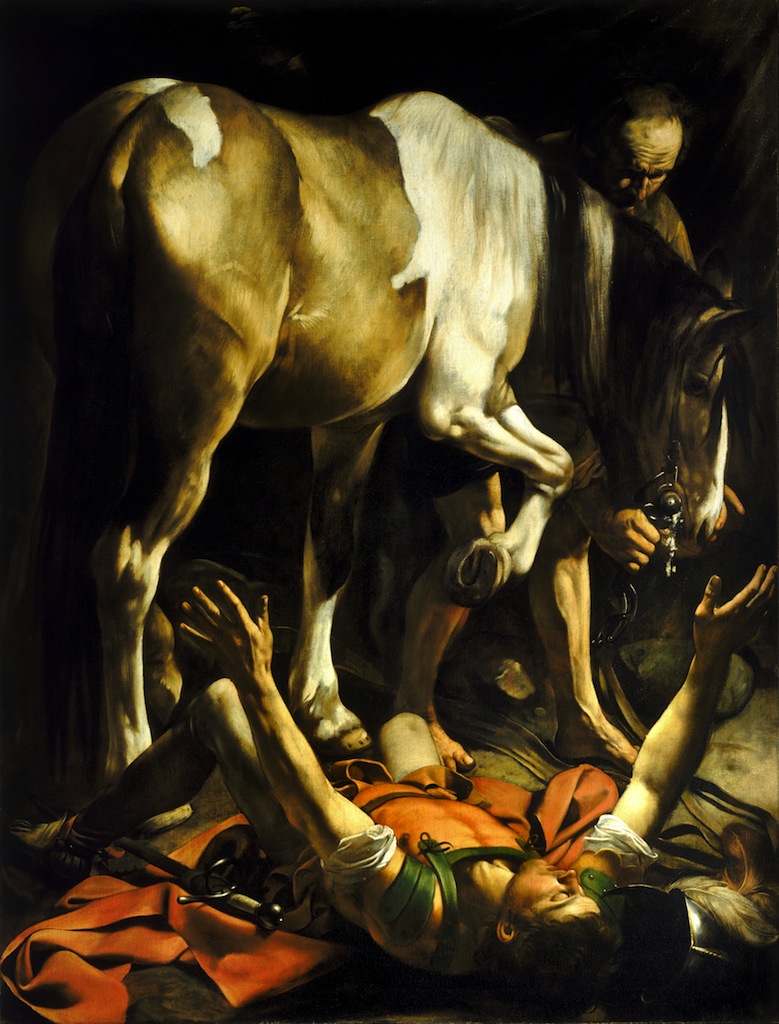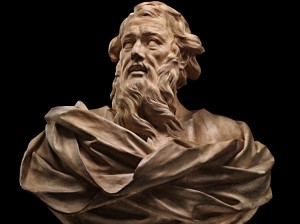Saul of Tarsus was a devout Pharisaic Jew who was born a citizen of the Roman Empire. He spoke fluent Greek, Latin, Hebrew, and Aramaic. He was educated at the feet of Gamaliel, a revered doctor of the Law and the Prophets. Upon his conversion to Christianity, Saul, renamed Paul, became the single most influential preacher of Christian faith. His unique life experience positioned him perfectly to have a fundamentally transformative influence on the infant church; evolving it from an obscure Jewish sect, into a distinct and devoted new faith with hundreds of thousands professing discipleship to Jesus of Nazareth.
Mormons, generally speaking, are appallingly ignorant of the teachings of Paul.
Paul must be read slowly and determinedly. He must be read in context. Often one needs to stop and re-read his sentences to better understand them. Each epistle is better understood by knowing something of the history of Paul’s ministry. Much of that history is recorded in the Acts of the Apostles, a sort of sequel to the gospel of Luke. Alternative translations of the Bible can be incredibly helpful when trying to digest and understand the teachings of Paul, particularly on the subject of salvation, which Paul refers to most often by the terms “justification” and “redemption”. Both are legal terms, as Paul is a lawyer (incidentally, he’s also a tentmaker). Justification refers to the legal process of judgement wherein a guilty party can be made just by the intercession of the judge. If one is declared by the court to be just, that ruling stands. And no lesser authority can undo that judgement. Redemption has reference to the slave trade, which was common throughout the Roman Empire and familiar to almost any one to whom Paul was writing. Two of Paul’s epistles even concern the subject of a particular slave, named Onesimus, who was converted to Christianity under Paul’s influence, while fleeing the captivity of his owner, Philemon, a Bishop of the church in Colossae. Paul uses the social institution of slavery to teach his readers about the nature of the atonement. All of us are indentured to sin and death. The law makes certain that we are universally condemned. Paul’s words, quoting Isaiah:
“As it is written, There is none righteous, no, not one: There is none that understandeth, there is none that seeketh after God. They are all gone out of the way, they are together become unprofitable; there is none that doeth good, no, not one. Their throat is an open sepulchre; with their tongues they have used deceit; the poison of asps is under their lips: Whose mouth is full of cursing and bitterness: Their feet are swift to shed blood: Destruction and misery are in their ways: And the way of peace have they not known: There is no fear of God before their eyes… For all have sinned, and come short of the glory of God” (Romans 3:10-18;23)
Beyond debtors who have a balance owed, Paul insists that we are utter slaves to sin; hopelessly in bondage, without any power to become free unto ourselves. Our freedom is absolutely impossible to earn by our own labor. One who is already free must purchase us on the open market and declare us to be free. That is the role of Christ. His most majestic and awe-inspiring title is and will always be, Redeemer.
 As Paul’s ministry branched into the Grecian archipelago, gentiles with a Pagan background began to unite themselves with a church that was headquartered in Jerusalem and presided over by twelve lifelong Jews. The stigma of Paganism in the Jewish body of the church was strong. The first and second commandments in the law of Moses were adamant on the subject of idols and graven images. Everything associated with Pagan worship was considered profoundly unclean. As might be expected, Jewish Christians who witnessed gentile converts in Corinth consuming meat that had been offered to Pagan deities, sought to correct the behavior of their gentile brothers and sisters. In the hellenistic world it was common for the local butcher to offer the meat of the animals they slaughtered to the various gods they sought to appease. Meat that was thus “offered” was then sold to the community. The eating of such things didn’t really bother gentile converts. They never even considered the mere eating of their usual food would somehow be offensive to God, and in fact, Paul makes the point that it isn’t.
As Paul’s ministry branched into the Grecian archipelago, gentiles with a Pagan background began to unite themselves with a church that was headquartered in Jerusalem and presided over by twelve lifelong Jews. The stigma of Paganism in the Jewish body of the church was strong. The first and second commandments in the law of Moses were adamant on the subject of idols and graven images. Everything associated with Pagan worship was considered profoundly unclean. As might be expected, Jewish Christians who witnessed gentile converts in Corinth consuming meat that had been offered to Pagan deities, sought to correct the behavior of their gentile brothers and sisters. In the hellenistic world it was common for the local butcher to offer the meat of the animals they slaughtered to the various gods they sought to appease. Meat that was thus “offered” was then sold to the community. The eating of such things didn’t really bother gentile converts. They never even considered the mere eating of their usual food would somehow be offensive to God, and in fact, Paul makes the point that it isn’t.
“As concerning therefore the eating of those things that are offered in sacrifice unto idols, we know that an idol is nothing in the world, and that there is none other God but one… Howbeit there is not in every man that knowledge: for some with conscience of the idol unto this hour eat it as a thing offered unto an idol; and their conscience being weak is defiled. [Jews, who’ve lived under the law of Moses, naturally feel impure when they eat something that was offered to an idol] But meat commendeth us not to God: for neither, if we eat, are we the better; neither, if we eat not, are we the worse. [What you eat or drink has nothing to do with your salvation] But take heed lest by any means this liberty of yours become a stumblingblock to them that are weak. [We have to be careful not to let our own observances injure the faith or progress of another] (1 Corinthians 8:4-13)
What Paul is saying here should be noted. What is just for one man at one time, may not be just for another man at another time. Your concept of sin is different from mine, and that’s ok. In fact, that’s God’s design. I began this series of posts with a discussion of the Eden narrative, and how Eve’s courage to disobey a direct commandment was the essential beginning to the plan of happiness. Sin is not always sin. The principle Paul is elucidating is called, Christian Liberty. After conversion and covenant, the Holy Ghost becomes our only guide. The spirit was Eve’s ultimate guiding influence in deciding to partake of the fruit of the tree of knowledge of good and evil. She sought and obtained revelation. In actual practice, Christian Liberty means foremost, that we ought not to offend the spirit. We also need to bear in mind that what offends the spirit for us, doesn’t necessarily offend the spirit for others. Therefore, I ought not to enforce my concept of righteousness and wickedness on anyone else but myself, because what constitutes righteous or wicked behavior is DIFFERENT FOR EVERYONE. There is no universal right and wrong. This is the dangerous doctrine of Christ. Christian faith is really a more difficult discipleship, because it requires being in tune with yourself and with God, and observing no other path than perfect love toward every other creature. Christian Liberty teaches that the function of Christ’s redemption was to free us from not only sin, but also from its author, the law. Christ came to fulfill the law. To END it.
“Christ is the end of the law for righteousness to every one that believeth” (Romans 10: 4)
“All things are lawful for me, but all things are not expedient: all things are lawful for me, but all things edify not” (1 Corinthians 10:23).
“This only would I learn of you, Received ye the Spirit by the works of the law, or by the hearing of faith? Are ye so foolish? having begun in the Spirit, are ye now made perfect by the flesh?” (Galatians 3:1-2)
“Wherefore then serveth the law? [What is its purpose?] It was added because of transgressions, till the seed should come (Christ) to whom the promise was made; and it was ordained by angels in the hand of a mediator… If there had been a law given which could have given [eternal] life, verily righteousness should have been [achieved] by the law. But the scripture hath concluded all under sin, that the promise by faith of Jesus Christ might be given to them that believe. But before faith came, we were kept under the law, shut up unto the faith which should afterwards be revealed. Wherefore the law was our schoolmaster to bring us unto Christ, that we might be justified by faith. But after that faith is come, we are no longer under a schoolmaster. For ye are all the children of God by faith in Christ Jesus. For as many of you as have been baptized into Christ have put on Christ. There is neither Jew nor Greek, there is neither bond nor free, there is neither male nor female: for ye are all one in Christ Jesus. And if ye be Christ’s, then are ye Abraham’s seed, and heirs according to the promise.” (Galatians 3:19-29)
This is another slavery reference. In the homes of wealthy Roman children (probably including the young Saul), children were cared for and taught, even disciplined when necessary, by a slave called a schoolmaster. The schoolmaster is, in point of fact, the future property of the child for whom they take care. The child is the heir of his parent, who owns the schoolmaster.
“The heir, as long as he is a child, differeth nothing from a servant, though he be lord of all; But is under tutors and governors until the time appointed of the father. Even so we, when we were children, were in bondage under the elements of the world: But when the fulness of the time was come, God sent forth his Son, made of a woman, made under the law, To redeem them that were under the law, that we might receive the adoption of sons. And because ye are sons, God hath sent forth the Spirit of his Son into your hearts, crying, Abba, Father. Wherefore thou art no more a servant, but a son; and if a son, then an heir of God through Christ.” (Galatians 4:1-7)
 Obedience to the laws and commandments was never meant to be our career. It was our training wheels. It was elementary school. When Christ came to fulfill the law he made us heirs. The law never, in reality, owned us. It was always our servant and now, because we posses the Spirit of Christ, we can obtain enabling grace. We are already the heirs of eternal life. Paul lived a remarkably exemplary Christian life. He readily acknowledged his weaknesses. He spoke to the Corinthian and Thessalonian saints about “a thorn in his flesh”, which he had often prayed that God would remove. A sin that easily best him, that he longed to be free of. But Paul never doubted the Physician who would eventually pull it out and salve his wound with Gilead’s balm. He used his unique gifts to transform his own life and the lives of as many of his brothers and sisters as humanly possible.
Obedience to the laws and commandments was never meant to be our career. It was our training wheels. It was elementary school. When Christ came to fulfill the law he made us heirs. The law never, in reality, owned us. It was always our servant and now, because we posses the Spirit of Christ, we can obtain enabling grace. We are already the heirs of eternal life. Paul lived a remarkably exemplary Christian life. He readily acknowledged his weaknesses. He spoke to the Corinthian and Thessalonian saints about “a thorn in his flesh”, which he had often prayed that God would remove. A sin that easily best him, that he longed to be free of. But Paul never doubted the Physician who would eventually pull it out and salve his wound with Gilead’s balm. He used his unique gifts to transform his own life and the lives of as many of his brothers and sisters as humanly possible.
“For though I be free from all men, yet have I made myself servant unto all, that I might gain the more. And unto the Jews I became as a Jew, that I might gain the Jews; to them that are under the law, as under the law, that I might gain them that are under the law; To them that are without law, as without law, (being not without law to God, but under the law to Christ,) that I might gain them that are without law. To the weak became I as weak, that I might gain the weak: I am made all things to all men, that I might by all means save some.” (1 Corinthians 9:19-22)
Being justified freely by his grace through the redemption that is in Christ Jesus; Whom God hath set forth to be a propitiation through faith in his blood, to declare his righteousness for the remission of sins that are past, through the forbearance of God; To declare, I say, at this time his righteousness: that he might be just, and the justifier of him which believeth in Jesus. Where is boasting then? It is excluded. By what law? of works? Nay: but by the law of faith. Therefore we conclude that a man is justified by faith without the deeds of the law. Is he the God of the Jews only? Is he not also of the Gentiles? Yes, of the Gentiles also: Seeing it is one God, which shall justify the circumcision by faith, and uncircumcision through faith. (Romans 3:23-30)
“The incomparable grace of faith is this: that it unites the soul to Christ, as the wife to the husband, by which mystery, as the Apostle teaches, Christ and the soul are made one flesh. Now if they are one flesh, and if a true marriage—nay, by far the most perfect of all marriages—is accomplished between them, then it follows that all they have becomes theirs in common; so that whatsoever Christ possesses, that the believing soul may take to itself and boast of as its own, and whatever belongs to the soul, that Christ claims as His. Who then can value highly enough these royal nuptials? Who can comprehend the riches of the glory of this grace? Christ, that rich and pious Husband, takes as a wife a needy and impious harlot, redeeming her from all her evils and supplying her with all His good things. It is impossible now that her sins should destroy her, since they have been laid upon Christ and swallowed up in Him, and since she has in her Husband Christ, a righteousness which she may claim as her own, and which she can set up with confidence against all her sins, against death and hell, saying, “If I have sinned, my Christ, in whom I believe, has not sinned; all mine is His, and all His is mine,” as it is written, “My beloved is mine and I am His” (Cant. ii. 16). This is what Paul says: “Thanks be to God, which giveth us the victory through our Lord Jesus Christ.”
– Martin Luther, Concerning Christian Liberty.






I have the attention span of a squirrel on espresso. Is there a Cliff’s Notes version? I agree that Paul is glossed over by most LDS. He is probably most used by those of the evangelical persuasion.
This is outstanding. It’s a keeper and re-reader. I have many evangelical friends, pastor’s among them, we attend their service at times. The New Testament comes alive in their hands. Okay the entire bible. I remember trying to use their knowledge when we taught seminary. As a faith we tend to keep biblical figures 2 dimensional at best. Thanks.